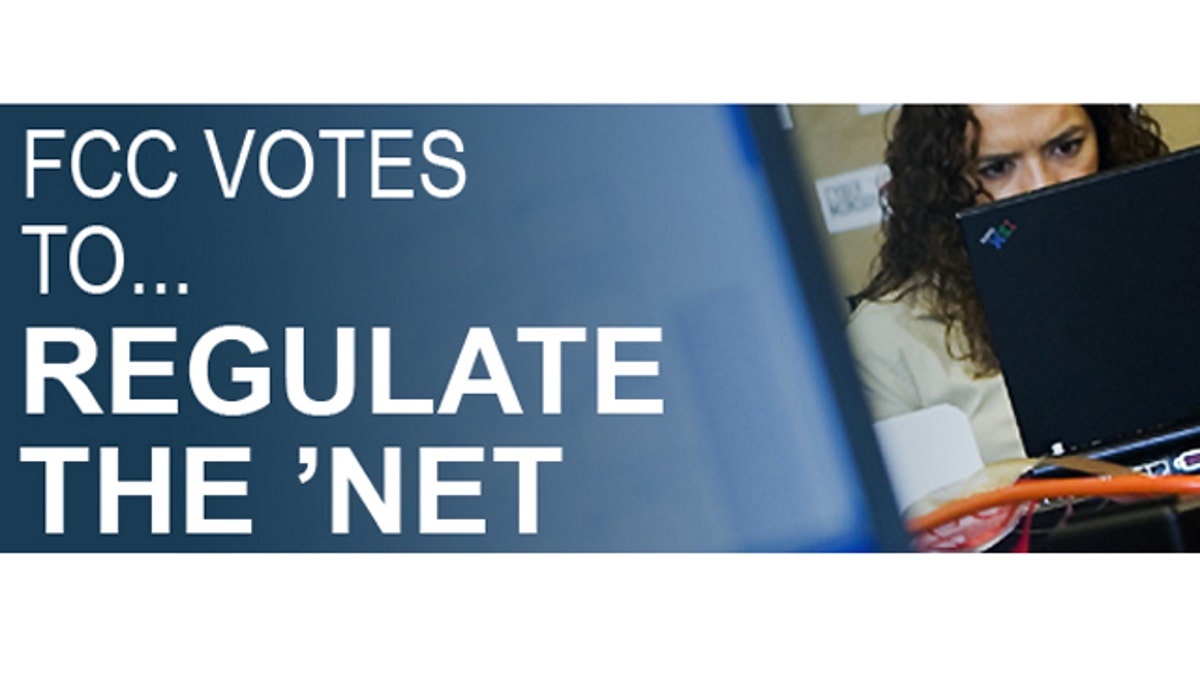
(AFP)
Thanks for watching that YouTube video! That will be 50 cents, please.
Sound unrealistic? It's actually fairly likely, some say, despite a ruling handed down Tuesday by the FCC meant to prevent Internet service providers from charging customers based on the amount of bandwidth they use. Others fret that the FCC's ruling will cause more problems than it solves, and needless regulate an Internet that was working just fine.
And some argue that the online issue is the greatest threat to freedom we face today.
Welcome to the complex world of net neutrality.
The basic problem is simple: As online video has grown in popularity, thanks to sites like YouTube and Hulu.com, Internet service providers (ISPs) complain that each consumer is more of a burden to service -- that's you, me and your next-door neighbor, Phil.
'Giants like Comcast and Verizon want to offer premium and privileged access to the Internet.'
Today, Comcast, Time Warner, or whomever you pay monthly, charges you and Phil more or less the same amount. But say Phil watches four hours of basketball online every night. Should he pay more for that? There's the neutrality part, the argument that you should pay one fee for access to the entire Internet, regardless of what type of content you watch or which sites you visit.
Well … that makes sense, right? If service providers could charge based on the type of content you watch, they could easily create a system like that of today's cable television market. Want HBO? It's an extra $5. Want our streaming video package, with YouTube, Hulu, TV.com, and more? That's $5 too. Don't pay and you can't watch. Period.
"Internet service giants like Comcast and Verizon want to offer premium and privileged access to the Internet for corporations who can afford to pay for it," worried Minnesota senator Al Franken in an editorial at the Huffington Post. ISPs argue that they should be allowed to charge based on the amount of bandwidth they use. It remains to be seen whether the type of content will be protected, however.
The more people speculate, the more the nightmarish scenarios quickly pile up.
Consider the overlap between service providers and content providers. Time Warner owns local channel NY1 in New York City. What's to stop the company from optimizing access to its site -- and charging you more for access to other local news? Sound silly? Don't forget that Comcast has been fighting to buy NBC, at a proposed $13.8 billion.
Maybe that's why Franken called it the most important issue of our time.
Others agree -- but argue that the best thing we can do is absolutely nothing.
Nothing is broken that needs fixing, wrote Robert McDowell, a Republican commissioner of the Federal Communications Commission, in an opinion essay in The Wall Street Journal. "The Internet has been open and freedom-enhancing since it was spun off from a government research project in the early 1990s. Its nature as a diffuse and dynamic global network of networks defies top-down authority. Ample laws to protect consumers already exist."
Opinions are so diverse it's hard to wrap your head around, and all perspectives seem realistic, at least on some level. Technologists are passionate: TechCrunch editor John Biggs wrote that "if we stay silent on this, the Internet will change."
Privacy advocates are worried: Watchdogs at the Electronic Frontier Foundation fear that rules will make it impossible for new companies to launch, creating " barriers to entry for the next generation of garage innovators."
The net neutrality rule may be designed to allow for a tiered Internet. Or it may end up preventing one entirely. Who knows? The FCC held most discussions behind closed doors, until this morning's debate and final approval of the regulations.
But either way, it's bound to end up affecting your wallet. And you should care -- if for no other reason than that.








































